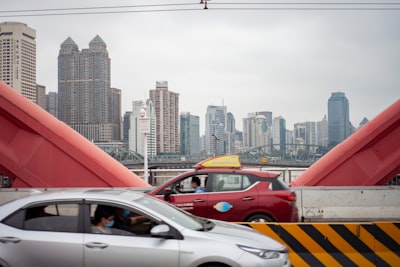Summary
The highlighted stories from South China Morning Post (SCMP) cover a spectrum of current China-related developments. First, Neysun Mahboubi, a US academic, observes cautious optimism about the endurance of US-China relations after a student tour, despite ongoing tensions. Second, China's factory activity showed slight recovery in June—but still lingered in a slump, reflecting persistent strain from subdued demand and the US-China trade war. Third, recent research explains why electric vehicles (EVs) can make some people queasy, attributing it to features like regenerative braking, with a possible remedy offered by Japanese scientists: sound therapy.
Analysis
These stories collectively reveal the interconnectedness of global, industrial, and technological challenges facing China. The Mahboubi commentary suggests that historical precedent offers hope for lasting engagement between the US and China, but stops short of denying real friction. The concern here is not just diplomacy but the broader reliability of international cooperation in times of strain.
Industrial woes, as evident in June’s hesitant bounce in Chinese factory activity, reflect deeper vulnerabilities: overcapacity, demand shifts, and perhaps the unpredictability caused by 'decoupling' trends. Even as trade tensions seem to ease, recovery is sluggish—suggesting that structural adaptation may lag behind the pace of geopolitical change.
On the consumer front, the EV motion sickness story injects a human dimension to technological transitions. EVs, often lauded for their green credentials, are not without unintended consequences—showing that every new technology creates winners, losers, and challenges. The reported solution (sound therapy) reminds us that user experience is as much about biology as about batteries and algorithms.
Discussion
Why do these stories matter? Together, they speak to the unpredictability of national fortunes in a rapidly changing world. US-China ties are often seen as the axis on which modern geopolitics turns; finding even 'moderate optimism' in such a fraught space is an important reminder of diplomacy’s resilience, but also of its limits. The industrial headlines pose a question for policymakers and citizens alike: can China (or any large economy) pivot quickly enough to overcome externally-driven shocks?
The EV angle is perhaps even more broadly relevant. As societies race towards decarbonization, the social, psychological, and physiological effects of sweeping change are often underestimated. That Japanese researchers are working on cures for EV-induced nausea speaks to both the universality of the problem and the creativity of responses. What other unexpected side effects might new technologies bring? Are we ready for a world where the rhythm of progress is set not only by economics and engineering, but also by human adaptability?
In sum, the SCMP’s daily highlights sketch the contours of a world where macro-level tensions and micro-level discomforts are tightly intertwined—reminding us that the biggest geopolitical shifts often land in the smallest details of everyday life.

Comments
No comments yet. Be the first to comment!